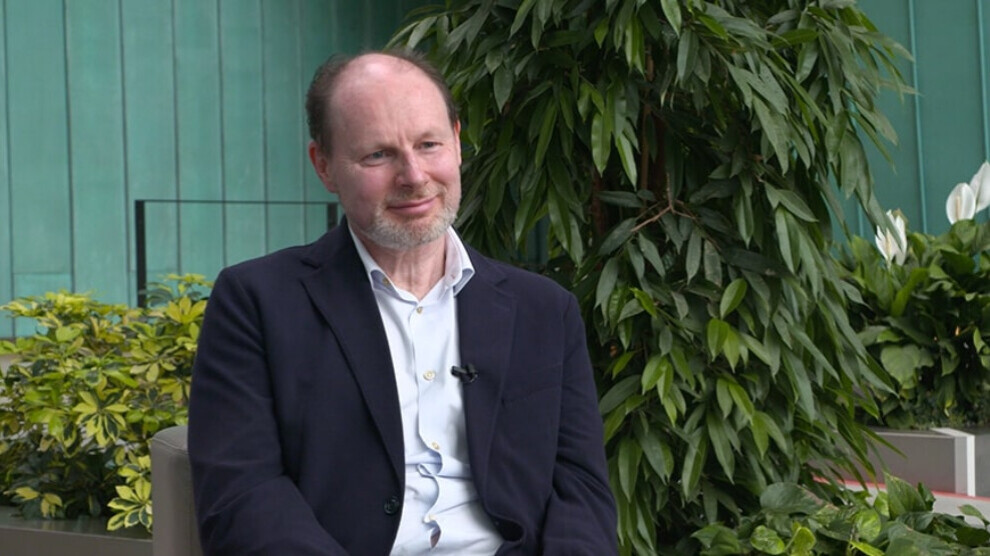What did CPT respond to ANF about isolation in Imrali?
How did CPT respond to ANF regarding the Imrali isolation?
How did CPT respond to ANF regarding the Imrali isolation?

The CPT, which was at the center of reactions due to its responsibility for the absolute isolation of Kurdish People's Leader Abdullah Öcalan, answered questions for the first time. It said that isolation was unacceptable but sidestepped its own responsibility and left two questions unanswered.
The Committee for the Preventiong of Torture (CPT), which accepted that the continuous blocking of Kurdish People's Leader Abdullah Öcalan's right to visit family and lawyer is unacceptable and clearly contrary to international standards, ignored its responsibility and chose to pass the ball to Turkey.
ANF wanted to talk about the Imrali isolation, which concerns millions of people, especially the Kurdish people, with the CPT, which is the addressee of the issue and also the focus of criticism.
Our request for a face-to-face meeting dated 9 July with CPT Deputy Chairman Hans Wolff, who was among the delegation that last visited Imrali, or any official was rejected, saying, "Since the report on the last visit to Imrali has not been published yet, such a meeting will not be possible."
Upon ANF insistence, it was accepted that our questions would be answered in writing. We are publishing our questions and the answers given in writing by the CPT Executive Secretary Hugh Chetwynd.
Is the CPT, which last visited Imrali prison in September 2022, still not publishing its report just because it could not get Turkey's approval?
The ECPT Convention is based on the twin pillars of cooperation and confidentiality. As a result, the Convention only allows the CPT to publish a report with the authorization of the State Party.
The lack of news from the prisoners in Imrali has caused deep concern in the public. Is the CPT working on this issue?
The Committee is in constant dialogue with the Turkish authorities, but this dialogue remains confidential. However, it is important to stress that, in 2019 and as during previous visits, the delegation received no allegations of ill-treatment of prisoners by prison officers at Imralı Prison. On the contrary, all prisoners indicated that they were treated correctly by staff.
Is the CPT planning to visit İmralı Prison again in case of lack of news?
The CPT has visited Imrali 9 times, each time as an ad hoc visit, in 1999, 2001, 2003, 2007, 2010, 2013, 2016, 2019 and 2022. The CPT may decide, if it considers it necessary, to carry out a further visit to the site.
The lawyers of Kurdish People's Leader Abdullah Öcalan and the three other prisoners in Imrali point out that there has been no communication with their clients for more than three years. Does the CPT have any knowledge of this state of absolute lack of communication? What is he doing to overcome this?
The CPT follows the situation of Abdullah Öcalan and the three other prisoners very closely. In addition to the ongoing dialogue with the national authorities, the CPT is also in regular contact with Abdullah Öcalan lawyers.
Are the prisoners in İmralı under absolute isolation?
The CPT stressed in the 2019 visit report that all prisoners were being held in solitary confinement for most of the time (i.e. 159 hours out of 168 hours per week, including 24 hours per day at weekends). In the CPT’s view, such a state of affairs is not acceptable.
How does the CPT, which fights against torture and ill-treatment, view prisoners being deprived of the right to meet with their families and lawyers for long periods of time? Isn't this a violation of the Agreement?
The issue of contact with the outside world of prisoners held at Imralı Prison has always been a subject of a long-standing intense dialogue between the CPT and the Turkish authorities. The CPT repeatedly stressed in its dialogue with the Turkish authorities that the continuous denial of visits by lawyers and family members is not acceptable and clearly contravenes various relevant international human rights instruments and standards.
In its previous reports, the CPT had made a number of recommendations to the Turkish authorities to improve the conditions in Imrali Prison. Did Turkey take these recommendations of the CPT into consideration?
The CPT systematically requests a response from the national authorities of each State Party to the report it addresses to them. This response must set out the measures taken by the government to remedy the situations raised. The Turkish Government’s response to the recommendations cited in the 2019 report can be consulted on the Committee's website. No information other than that contained in the authorities' response can be given.
The questions left unanswered
Two questions were left unanswered. We reproduce them here for completeness.
The first was: The CPT recently made a public statement against Azerbaijan (under Article 10(2) of the Convention). Does it intend to make such a statement about Turkey as well?
The second was: Former CPT presidents Mauro Palma and Marc Neve, whom ANF has interviewed before and who visited Imrali many times, said that Imrali was not a suitable location for a prison and that CPT should be more active against the conditions of Abdullah Öcalan. They pointed out that he could play a role. Is Imrali Island Prison suitable for a penal institution according to the CPT? Is the CPT considering taking a more active role in the face of Abdullah Öcalan's conditions?